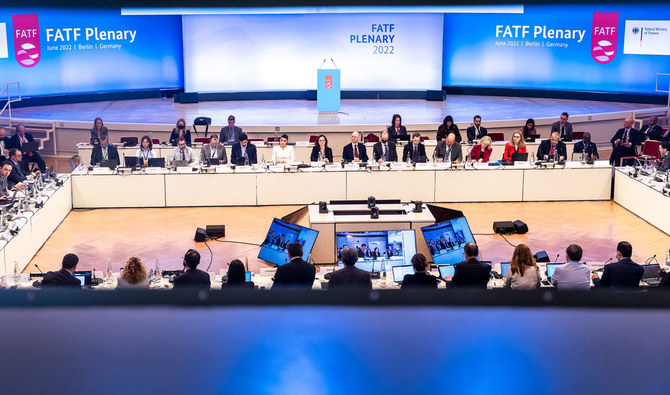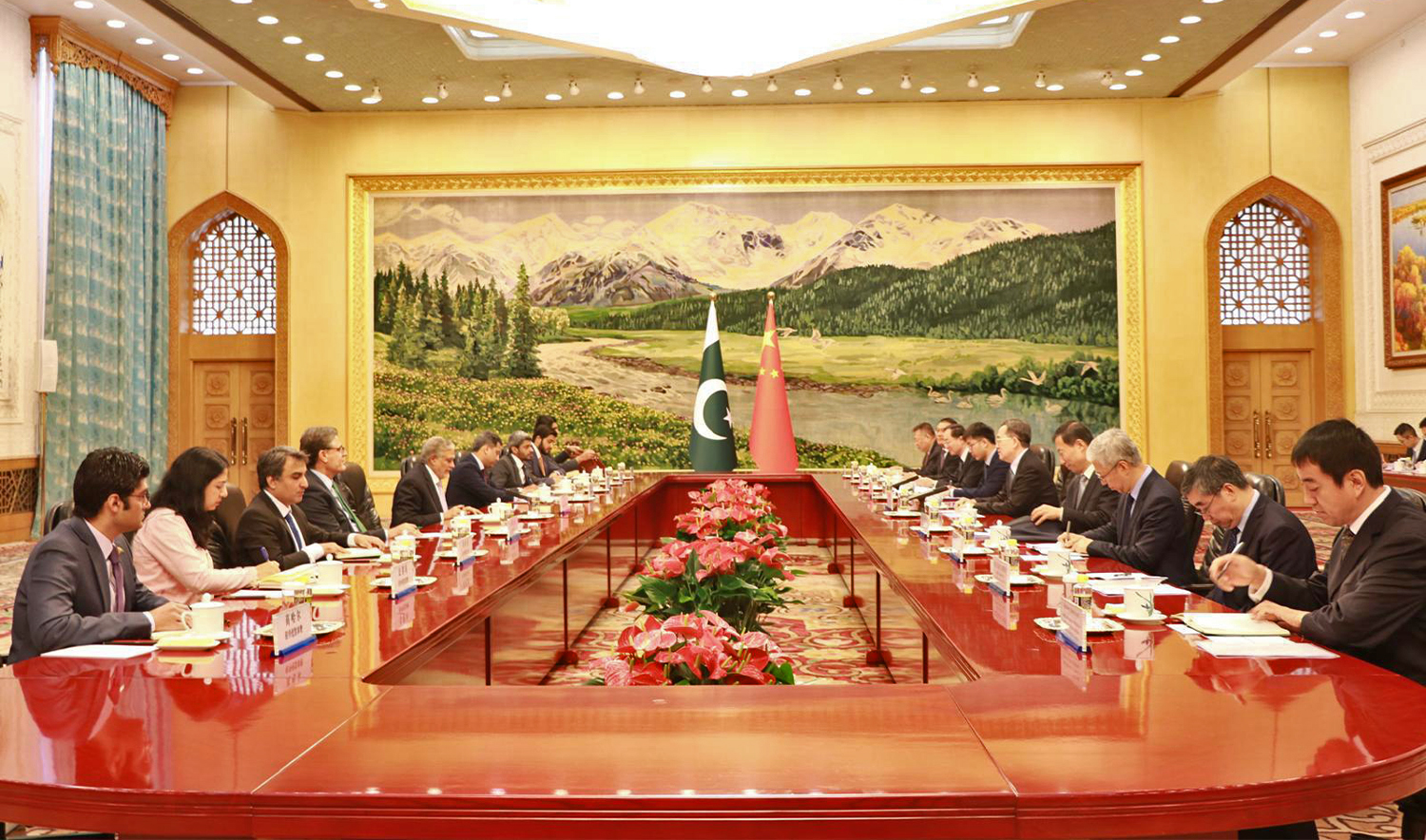ISLAMABAD: Pakistan is hopeful to exit the grey list of the Financial Action Task Force (FATF) this week as the two-day plenary of the global dirty money watchdog begins in Paris today, Thursday.
Pakistani officials say the country has successfully implemented 34 action points to counter money laundering and terrorism financing and will be removed from the “increased monitoring list,” commonly known as the grey list, to which it was added in June 2018.
The list includes countries with weak financial systems that can be exploited by criminal elements for money laundering and terrorism financing. Countries on the list are formally required to pledge to work with FATF to strengthen their financial systems. Pakistan was initially given a 27-point action plan, which was later enhanced to 34.
An official at Pakistan’s Financial Monitoring Unit (FMU), who supervised the implementation of the 34-point action plan, cautiously told Arab News the plenary would make the final decision on Pakistan's grey list status Friday.
“Things are in process at the moment,” Samina Chagani, deputy-director at the FMU, said. “We have done our job and things will now be discussed at the plenary.”
“We are hopeful to exit the grey list as we have met all the requirements,” a top Federal Board of Revenue (FBR) official, who was involved in implementing the watchdog’s concerns regarding designated non-financial businesses and professions, told Arab News, requesting anonymity as he was not authorized to speak publicly on the matter.
He said the FBR unit he headed was tasked with ensuring criminal proceeds could not be stashed in sectors such as real estate, gold or other precious metals and stones.
“We have completed all the action plans and FATF has also recognized it,” he added. “Now it is entirely up to them as to what they decide in the meeting.”
The FATF plenary will be held on October 20-21 and attended by delegates representing 206 members of the Global Network and observer organizations, including the International Monetary Fund, United Nations, World Bank, Interpol and Egmont Group of Financial Intelligence Units.
In June this year, the global watchdog recognized Pakistan’s progress in implementing the 34-point action plan but kept the country on the grey list, saying it would carry out onsite inspection to verify the country’s progress.
A 15-member joint delegation of the FATF and its Sydney-based regional affiliate, the Asia Pacific Group, then paid a visit to Pakistan between August 29 and September 2 to verify its compliance with the action plan.
“From our perspective, the onsite visit was successful,” the FBR official said.
The Pakistan foreign office spokesperson, Asim Iftikhar, did not respond to a telephone call and text messages by the time the story was filed.
In June, Pakistan said it was “one step away” from exiting the grey list after the successful completion of the action plans.
“The successful completion of the action plans and its formal endorsement by FATF means that Pakistan has come to one step away from exiting from the grey list,” state minister for foreign affairs Hina Rabbani Khar, who is also the chair of Pakistan’s National FATF Coordination Committee, said at a media briefing at the time.
Economists and experts said Pakistan’s removal from the FATF watchlist could help the country attract foreign investment if a proper strategy was adopted.
“This will be positive news for the investors,” Dr. Salman Shah, a senior economist and former adviser to the government, told Arab News. “But this is unlikely to have any immediate, short-term impact on our economy because some other irritants like political instability still exist to put the investors off.”
However, he said one “negative irritant” would be abolished with the removal of the country from the FATF’s grey list, which would “help bring foreign inflows in the long-term.”

















